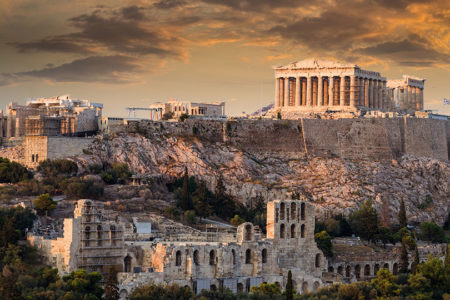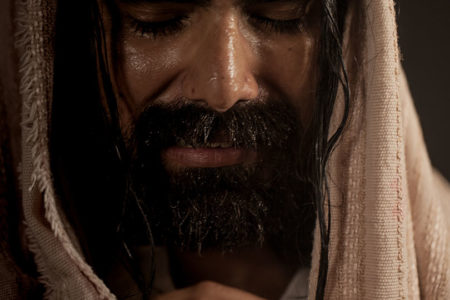Listening for the Chariots
According to a recent report in Ha’aretz, Israel is weighing the prospect of international control over the Temple Mount in Jerusalem. The Israeli newspaper reports that “Israel is not ruling out the possibility of acceding to a proposal by Palestinian Chairman Yasser Arafat to place sovereignty over the Temple Mount in the hands of a body consisting of the permanent members of the United Nations Security Council and the Jerusalem Committee of the Islamic Organization Conference.
“Under this idea, which is still being formulated, the joint body would confer on Arafat the jurisdiction over the Temple Mount and appoint him custodian of the Islamic holy places. Israel would retain sovereignty over the Western Wall and work out with the Palestinians and representatives of the Jerusalem Committee [of the Islamic Organization Conference] arrangements for the day-to-day administration of the compound, including security and worship for Jews.”
Israel’s Prime Minister Ehud Barak has denied that Israel would consider such an arrangement, saying, “No prime minister could ever give the Palestinians sovereignty over the Temple Mount.”
Two elements of interest in this report are sure to surface repeatedly in the future, albeit with slightly varying formats. The first is that control of both the Temple Mount and Western Wall (Wailing Wall) area would be dominated by Palestinian and Islamic authorities under this arrangement. The thought that Israelis would “work out” with the Islamic Jerusalem Committee day-today administration of the area does not bode well for the comfort or eventual presence of Jewish worshipers. The history of relations there in the past says all that need be said.
Second (and still on the table) is the often-stated “nonnegotiable” Palestinian demand for future sovereignty over the entire Old City with oversight of all Muslim and Christian holy places, devoid of all Israeli military presence. If this plan were implemented, it would recreate much the same scenario that existed before the Six-Day War in 1967, when Jews were banned from their holy sites. Access to Jewish holy sites would totter on the whims of Arafat and the Muslim Mufti of Jerusalem. No responsible Israeli, in or out of government, would agree to such debilitating concessions.
Of more momentous dimensions for the future is the prospect of sovereignty over the Temple Mount being placed in the hands of members of the United Nations Security Council. In light of the repeated failure of peace negotiations aided by Western intermediaries and the recent suggestion, born of desperation, that the Mount be placed under “divine sovereignty,” the idea of internationalizing Jerusalem will have increasing appeal. It is, in fact, what the nations have been warming up to since the founding of the modern State of Israel in 1948. That Israelis were never allowed to name Jerusalem as their capital makes this clear enough. Additionally, the world’s unprecedented and prejudicial refusal to establish national embassies in Jerusalem has punctuated international intentions with a giant exclamation point. The broader community of Gentile nations has other plans for the sacred city.
At the UN Millennial Summit held in New York last September, Yasser Arafat referred to Jesus Christ walking around Jerusalem. His statement was obviously intended to tie Jesus and Christians more closely to Islam than to Judaism. Ehud Barak retaliated by saying that when Jesus walked in Jerusalem, He would have seen no Islamic mosques. He would have seen a Jewish Temple and scores of synagogues.
Chairman Arafat’s references to Jesus have become a staple in his conversation for some time now. You would wonder, however, if he pays even scant attention to any of the words Jesus spoke while He walked those streets. One of His statements immediately comes to mind.
Jerusalem shall be trodden down by the Gentiles, until the times of the Gentiles be fulfilled (Lk. 21:24).
Jesus referred to the last days and the demolition of Gentile domination of Jerusalem. As one of the Gentiles driving his chariot toward the last gathering of the nations in an attempt to crush Israel and control the Holy City, Mr. Arafat should be forewarned. The same alarm should be ringing in the corridors of the United Nations. As in the days of Jabin and Sisera of old, the chariots and battlewagons of the world’s great Gentile powers will someday roll from the Plain of Megiddo toward Jerusalem. But the final outcome has already been announced.
Then shall the LORD go forth, and fight against those nations, as when he fought in the day of battle (Zech. 14:3).
If you listen closely, you can almost hear the rattle of those chariot wheels.







